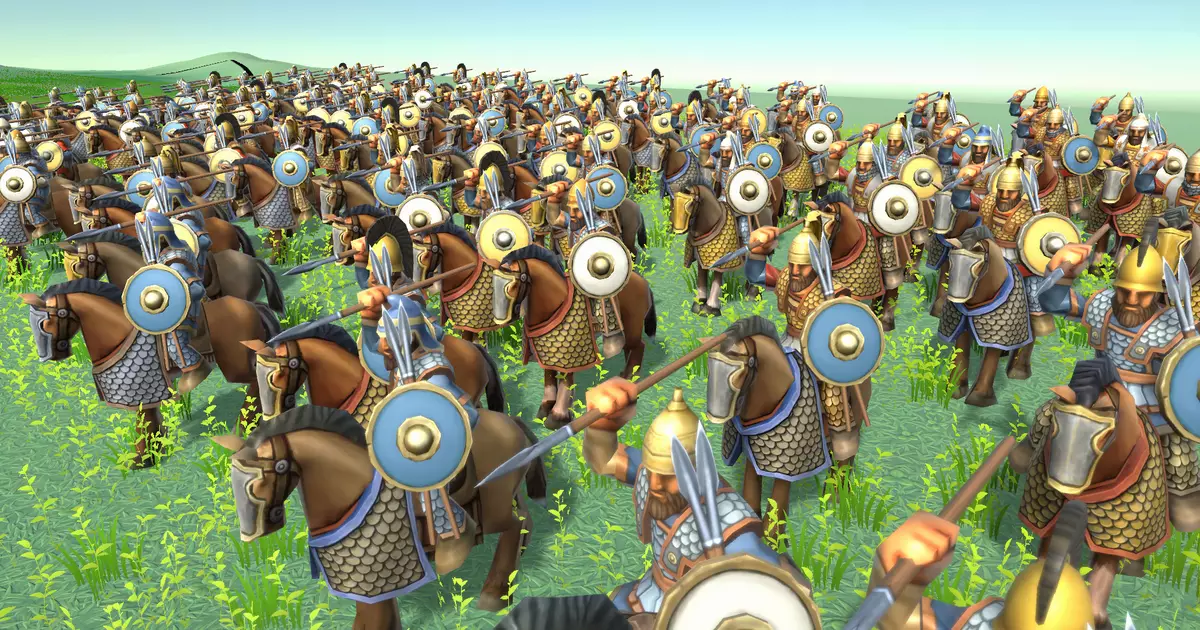In a world where video games continue to push the boundaries of storytelling and strategy, the announcement of Strategos by MicroProse not only stirs excitement among wargame enthusiasts but also represents a vital shift towards focusing on historical authenticity. This isn’t just another title riding the coattails of established franchises like Total War; Strategos emerges with a unique premise that allows players to dive deeper into the tactics and intricacies of classical antiquity warfare. As the revival of a brand with a storied legacy, it pulls in both nostalgia and the promise of innovation, positioning itself distinctively in the gaming landscape.
A Closer Look at Gameplay
At first glance, anyone familiar with tactical war games might be quick to liken Strategos to the Total War series. However, upon closer examination, the comparison falls short. Strategos is the brainchild of a single designer, bringing a decidedly personal touch to the game. Unlike the sprawling and sometimes unwieldy nature of Total War, which blends grand strategy with real-time battles and extensive faction management, Strategos zeroes in on the core of tactical combat itself. This return to basics seems to be a deliberate design choice, emphasizing real battle reenactments over epic kingdom management or diplomacy.
With a staggering choice of over 120 factions and 250 unique units, players will find themselves submerged in an ocean of historical richness. While names like the Meroitic Kushites and Spanish Celtiberians may not roll off the tongue as easily as the legions of Rome, they beckon a deeper exploration of less celebrated but equally fascinating cultures. The game’s myriad factions encourage players to embrace the diversity of warfare styles, pushing them to adapt strategies that align with the unique attributes of each army — a refreshing change that could potentially elevate the tactical experience.
The AI and Command Structures
Where Strategos potentially shines even brighter is in its AI and command mechanics. The developers emphasize the need for strategic placement of generals, as proper communication and coordination become key elements in battle—this is not just a matter of simple commands but rather a test of leadership and tactical awareness. In this very foundational aspect of gameplay, Strategos seeks to foster an immersive military environment reminiscent of classic tabletop experiences.
Indeed, specifics shared in progress notes hint at a complex AI capable of executing intelligent maneuvers. The attention to detail regarding unit interactions suggests that players will have to develop their tactical instincts further, thinking several moves ahead rather than relying on brute force. Unfortunately, with such lofty ambitions, the real test will be the execution; can these intricate systems function smoothly, or will they be overwhelmed in the chaos of battle?
Historical and Speculative Elements
The integration of both historical battles and speculative engagements is another facet that makes Strategos intriguing. The ability to reenact historical clashes like Issos and Raphia while supplying players with an editable sandbox to create custom scenarios ensures that the game remains fresh and engaging over time. This duality acknowledges both the importance of historical rigor and the free reign of creative expression, which appeals to a broad audience from history buffs to those keen on imaginative warfare.
There lies an unspoken challenge here, however. Balancing the authenticity of historical representation with engaging gameplay is no simple task, and many titles have faltered in this regard. Strategos must be meticulous in its attention to detail while ensuring that the game mechanics remain fluid and enjoyable rather than tedious.
Community Engagement and Feedback
Another noteworthy aspect of the game’s development is the commitment to community engagement, as evidenced by the frequent progress notes. By actively involving the player base, the developers are not only building anticipation but also fostering a sense of co-creation, which can be invaluable in modern game design. This transparency allows potential players to feel invested in the game’s evolution, creating a stronger bond with the title even before it hits the market.
The gaming industry thrives on opinion and feedback, and the dynamic nature of this ongoing dialogue can result in a product that genuinely resonates with its audience. This trend may be exactly what Strategos needs to distinguish itself—an open channel between developer and player can often lead to profound creativity and refinement.
The Legacy of MicroProse
In a time where gaming companies come and go, MicroProse resurrects its historical emblem not just to rely on its reputation but to forge a new path. Their choice to publish Strategos exemplifies a commitment to bringing high-quality, innovative strategies to light. Whether it can carve out its niche within the crowded genre is a question of execution and resonance, but the potential is palpable. Game releases like these bring fresh perspectives, and if Strategos can deliver on its promises, it may well redefine what players should expect from real-time tactical games in the future.

